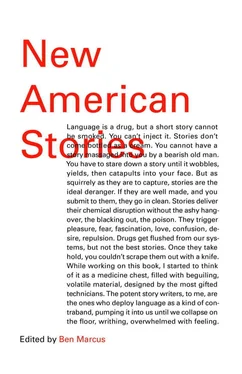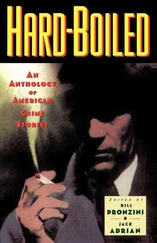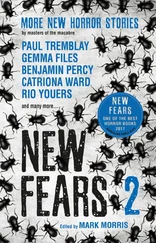—
Over time the situation in the Gulf began to ease. Abu Dhabi provided a ten-billion-dollar bailout and relative calm soon moved into the Gulf and across the digital networks to markets everywhere. This brought on a letdown in the common room. Even as the girls showed improvement in their delivery and signs of serious preparation, the men stopped coming in large numbers and soon there was only a scatter of us, here and there, sleepy and reflective.
—
We had TV but what had we lost, all of us, when we entered the camp? We’d lost our appendages, our extensions, the data systems that kept us fed and cleansed. Where was the world, our world? The laptops were gone, the smartphones and light sensors and megapixels. Our hands and eyes needed more than we could give them now. The touch screens, the mobile platforms, the gentle bell reminders of an appointment or a flight time or a woman in a room somewhere. And the sense, the tacit awareness, now lost, that something newer, smarter, faster, ever faster, was just a bird’s breath away. Also lost was the techno-anxiety that these devices routinely carried with them. But we needed this no less than the devices themselves, that inherent stress, those cautions and frustrations. Weren’t these essential to our mind-set? The prospect of failed signals and crashed systems, the memory that needs recharging, the identity stolen in a series of clicks. Information, this was everything, coming in, going out. We were always on, wanted to be on, needed to be on, but this was history now, the shadow of another life.
Okay, we were grown-ups, not bug-eyed kids in tribal bondage, and this was not an Internet rescue camp. We lived in real space, unaddicted, free of deadly dependence. But we were bereft. We were pulpy and slumped. It was a thing we rarely talked about, a thing that was hard to shake. There were the small idle moments when we knew exactly what we were missing. We sat on the toilet, flushed and done, staring into empty hands.
—
I wanted to find myself in front of the TV set for the market report, weekdays, four in the afternoon, but could not always manage. I was part of a work detail that was bused on designated days to the adjacent Air Force base, where we sanded and painted, did general maintenance, hauled garbage and sometimes just stood and watched as a fighter jet roared down the runway and lifted into the low sun. It was a beautiful thing to see, aircraft climbing, wheels up, wings pivoting back, the light, the streaked sky, three or four of us, not a word spoken. Was this the time, more than a thousand other moments, when the measure of our ruin was brought to starkest awareness?
—
“All of Europe is looking south. What do they see?”
“They see Greece.”
“They see fiscal instability, enormous debt burden, possible default.”
“ Crisis is a Greek word.”
“Is Greece hiding its public debt?”
“Is the crisis spreading at lightning speed to the rest of the southern tier, to the euro zone in general, to emerging markets everywhere?”
“Does Greece need a bailout?”
“Will Greece abandon the euro?”
“Did Greece hide the nature of its debt?”
“What is Wall Street’s role in this critical matter?”
“What is a credit default swap? What is a sovereign default? What is a special-purpose entity?”
“We don’t know. Do you know? Do you care?”
“What is Wall Street? Who is Wall Street?”
Tense laughter from pockets in the audience.
“Greece, Portugal, Spain, Italy.”
“Stocks plunge worldwide.”
“The Dow, the Nasdaq, the euro, the pound.”
“But where are the walkouts, the work stoppages, the job actions?”
“Look at Greece. Look in the streets.”
“Riots, strikes, protests, pickets.”
“All of Europe is looking at Greece.”
“ Chaos is a Greek word.”
“Canceled flights, burning flags, stones flying this way, tear gas sailing that way.”
“Workers are angry. Workers are marching.”
“Blame the worker. Bury the worker.”
“Freeze their pay. Increase their tax.”
“Steal from the worker. Screw the worker.”
“Any day now, wait and see.”
“New flags, new banners.”
“Hammer and sickle.”
“Hammer and sickle.”
Their mother had the girls delivering lines in a balanced flow, a cadence. They weren’t just reading, they were acting, showing facial expression, having serious fun. Screw the worker, Kate had said. At least their mother had assigned the vulgar line to the older girl.
Was the daily market report becoming a performance piece?
—
All day long the story passed through the camp, building to building, man to man. It concerned a convict on death row in Texas or Missouri or Oklahoma and the last words he’d spoken before an individual authorized by the state injected the lethal substance or activated the electric current.
The words were, Kick the tires and light the fire — I’m going home.
Some of us felt a chill, hearing the story. Were we shamed by it? Did we think of that man on the honed edge of his last breath as more authentic than we were, a true outlaw, worthy of the state’s most cruelly scrupulous attention? His end was officially sanctioned, an act welcomed by some, protested by some. If he’d spent half a lifetime in prison cells, in solitary confinement and finally on death row for one or two or multiple homicides, where were we and what had we done to be placed here? Did we even remember our crimes? Could we call them crimes? They were loopholes, evasions, wheedling half-ass felonies.
Some of us, less self-demeaning, simply nodded at the story, conveying simple credit to the man for the honor he’d brought to the moment, the back-country poetry of those words. By the third time I heard the story, or overheard it, the prison was located decisively in Texas. Forget the other places — the man, the story and the prison all belonged in Texas. We were somewhere else, watching a children’s program on TV.
—
“What’s this business about hammer and sickle?”
“Means nothing. Words,” I said. “Like Abu Dhabi.”
“The Hang Seng in Hong Kong.”
“Exactly.”
“The girls like saying it. Hammer and sickle.”
“Hammer and sickle.”
“Abu Dhabi.”
“Abu Dhabi.”
“Hang Seng.”
“Hong Kong,” I said.
We went on like that for a while. Norman was still murmuring the names when I shut my eyes and began the long turn toward sleep.
“But I think she means it. I think she’s serious. Hammer and sickle,” he said. “She’s a serious woman with a point to make.”
—
I stood watching from a distance. They passed through the metal detector, one by one, and moved toward the visitors’ center, the wives and children, the loyal friends, the business partners, the lawyers who would sit and listen in a confidential setting as inmates stared at them through tight eyes and complained about the food, the job assignments, the scarcity of sentence reductions.
Everything seemed flat. The visitors on the footpath moved slowly and monochromatically. The sky was barely there, drained of light and weather. Families were bundled and wan but I didn’t feel the cold. I was standing outside the dormitory but could have been anywhere. I imagined a woman walking among the others, slim and dark-haired, unaccompanied. I don’t know where she came from, a photograph I’d once seen, or a movie, possibly French, set in Southeast Asia, sex beneath a ceiling fan. Here, she was wearing a long white tunic and loose trousers. She belonged to another setting, this was clear, but there was no need for me to wonder what she was doing here. She’d come up out of the drowsy mind or down from the flat sky.
Читать дальше










![Женя Джентбаев - neo futura [stories]](/books/692472/zhenya-dzhentbaev-neo-futura-stories-thumb.webp)

